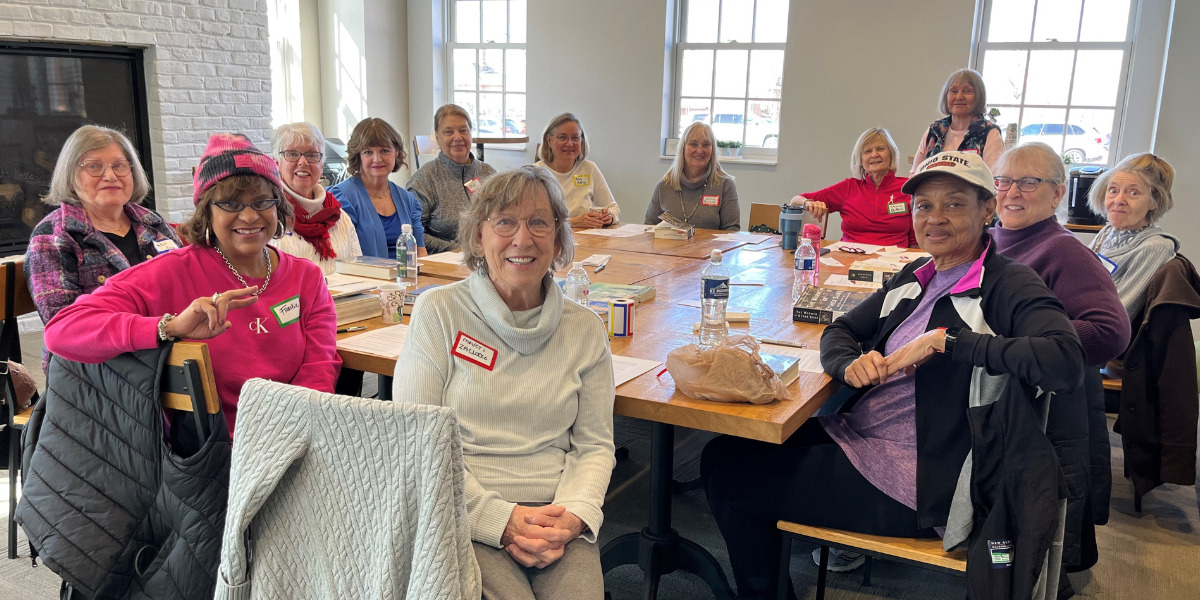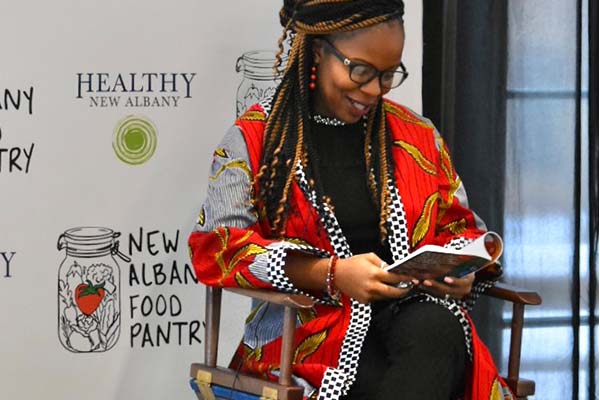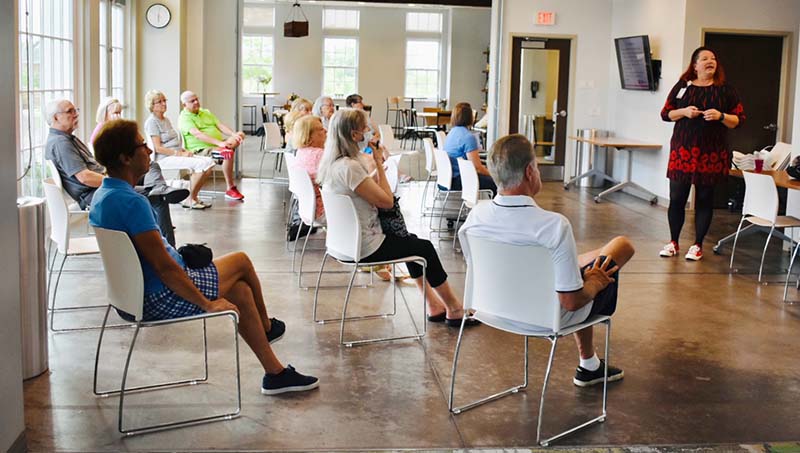
The Importance of Keeping Your Mind Active as You Age
Keeping Your Mind Vibrant as You Age
As we navigate the golden years of our lives, the importance of physical health is often highlighted, but what about our mental fitness? Keeping the mind active is not just a youthful pursuit; it’s a lifetime endeavor, especially as we age.
Mental Gymnastics for the Aging Brain Just like muscles, the brain needs exercise. Engaging in mentally stimulating activities such as puzzles, reading, or learning a new language can help to keep the brain sharp and may even stave off cognitive decline.
Social Learning for Cognitive Longevity Social interactions also play a key role in mental health. Community Health Talks and group learning environments provide social stimulation that can improve memory and cognitive skills, proving that learning can be both a personal growth experience and a communal one.
Embracing Technology for Ageless Learning In today’s digital age, technology provides an unprecedented opportunity for seniors to access educational resources. Online courses, virtual museums, and interactive games make it possible to keep learning and exploring, regardless of mobility or location.
In conclusion, maintaining an active mind is essential for a fulfilling and independent life as we age. At Healthy New Albany we believe in supporting this journey of mental vitality in all that we do!



Wellness Works – Keeping Your Mind Clear at Work
The way we start our day profoundly influences our ability to focus, problem-solve, and apply critical thinking skills. Since 1998, research indicates a 42% decline in workplace concentration levels.
Dr. Cheryl Travers, a professor at Loughborough University’s School of Business in England, led a study revealing that simply listing the top three tasks to accomplish daily can significantly enhance productivity and focus.
Hal Elrod’s “Miracle Morning” advocates a morning routine of five practices to prime the nervous system, foster tranquility, and clarify daily priorities. These practices include:
- Allowing time for quiet reflection.
- Visualizing daily goal achievements.
- Reading for pleasure.
- Writing in a journal and crafting affirmations.
- Engaging in physical activity.
Whether it’s an hour or just five minutes, the duration of this routine is flexible. Its transformative power lies in prioritizing our well-being each morning, enabling us to perform optimally throughout the day.
Wellness Works extends this valuable insight to your employees through our Lunch and Learn sessions and monthly publications. We complement this with manageable activities that reinforce the wellness strategies we explore.
Lifelong Learning: The Endless Adventure of Knowledge
In a world that’s constantly evolving, the pursuit of knowledge is a lifelong adventure that never loses its luster. Lifelong learning is an enriching journey that extends far beyond the conventional classroom setting—it’s an enduring mindset that embraces growth, change, and the pursuit of wisdom in all stages of life.
The Lifelong Learner’s Mindset: Lifelong learners are characterized by their insatiable curiosity and unyielding drive to explore new horizons. They see each day as an opportunity to learn something new, to refine a skill, or to delve into uncharted territories of knowledge. This mindset isn’t confined by age or profession; it’s a conscious choice to remain a student of life indefinitely.
The Universal Classroom: The entire world serves as a classroom for the lifelong learner. From the intricate workings of nature observed on a walk to the intricate dance of cultures experienced during travel, every experience has something to teach. Moreover, the digital age has flung open the doors to knowledge, making it accessible to all through online courses, webinars, and a vast array of multimedia resources.
Benefits That Span a Lifetime: The benefits of lifelong learning are as diverse as the subjects to be studied. It keeps the brain active and engaged, promotes adaptability, and enhances creativity. It also contributes to personal development and self-fulfillment, providing a sense of achievement and confidence that transcends the bounds of academic or professional arenas.
The Ripple Effect of Knowledge: The impact of lifelong learning isn’t just personal; it’s communal. Knowledgeable individuals contribute profoundly to society—through informed decisions, innovative ideas, and by setting an example for future generations. As each person expands their understanding, they become better equipped to contribute to conversations, solve problems, and make a positive impact on the world.
In essence, lifelong learning is the embrace of growth and the love of knowledge, carrying with it the promise of a more enlightened existence. It’s about not being content with what you already know but being excited about what you have yet to learn. So, let’s all be students of life—curious, eager, and always ready to learn something new.


Healthy New Albany Community Health Talks
Our Community Health Talks, and lectures with local speakers on topics related to health and wellness, are just one way we strive to inspire health and wellness in our community. The importance of these health talks are:
-
Education and Awareness: They provide a platform to disseminate important health information and educate the public on various health topics, which may include preventive care, disease management, nutrition, and mental health.
-
Local Relevance: Speakers from the local area can offer insights and information that are particularly relevant to the community, addressing specific health concerns or environmental factors affecting local residents.
-
Engagement and Empowerment: These talks encourage community engagement by involving local residents in health-related discussions, empowering them to take charge of their health and make informed decisions.
-
Accessibility: Health talks make expert health advice and guidance more accessible to people who might not otherwise have the resources to obtain this information.
-
Support Networks: They can help in building support networks by connecting individuals with similar health concerns or conditions.
-
Health Promotion: By promoting health and wellness, community health talks can contribute to the overall reduction in healthcare costs by focusing on prevention and early detection of diseases.
-
Cultural Competence: Local speakers are more likely to understand the cultural nuances of the community, which can lead to better communication and comprehension of health messages.
-
Feedback Mechanism: Such events provide a platform for healthcare professionals to receive feedback from the community about their health needs and concerns, which can inform future healthcare planning and policies.
You can learn more about our community health talks by visiting www.hna.recdesk.com
